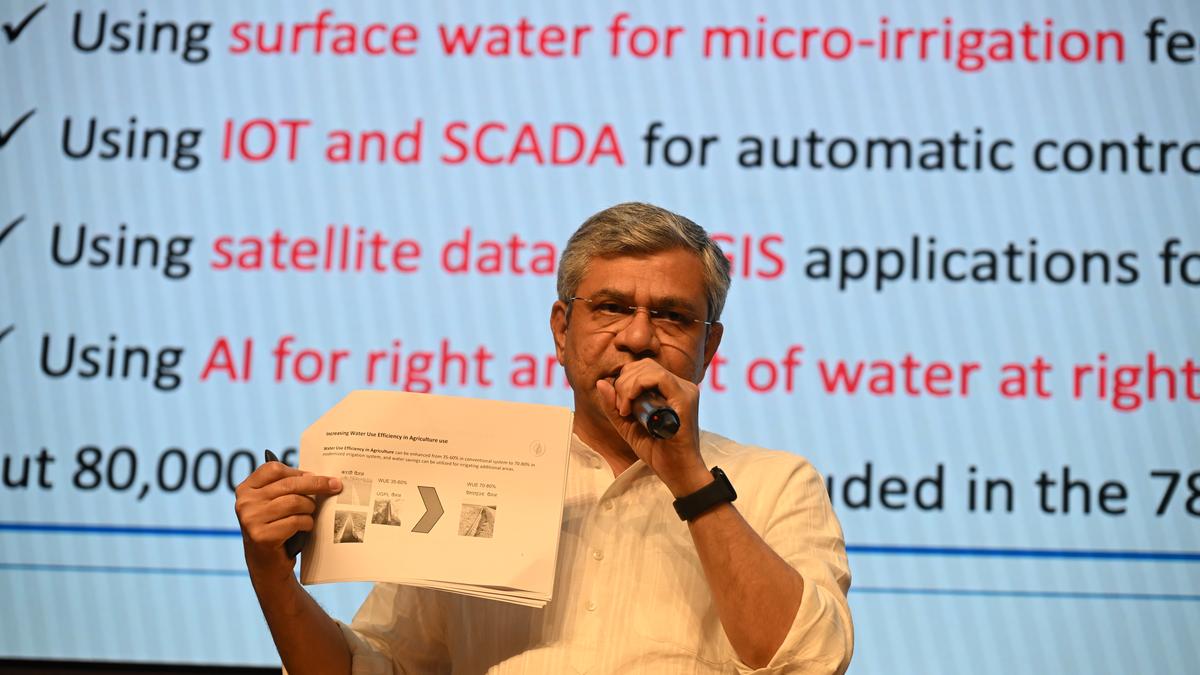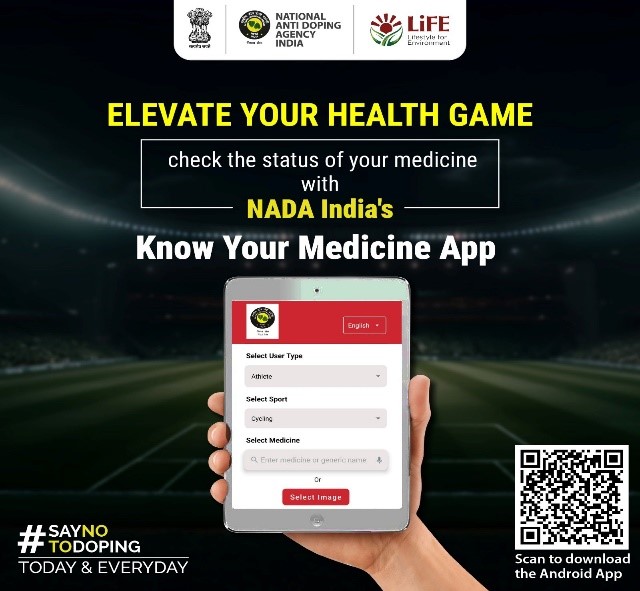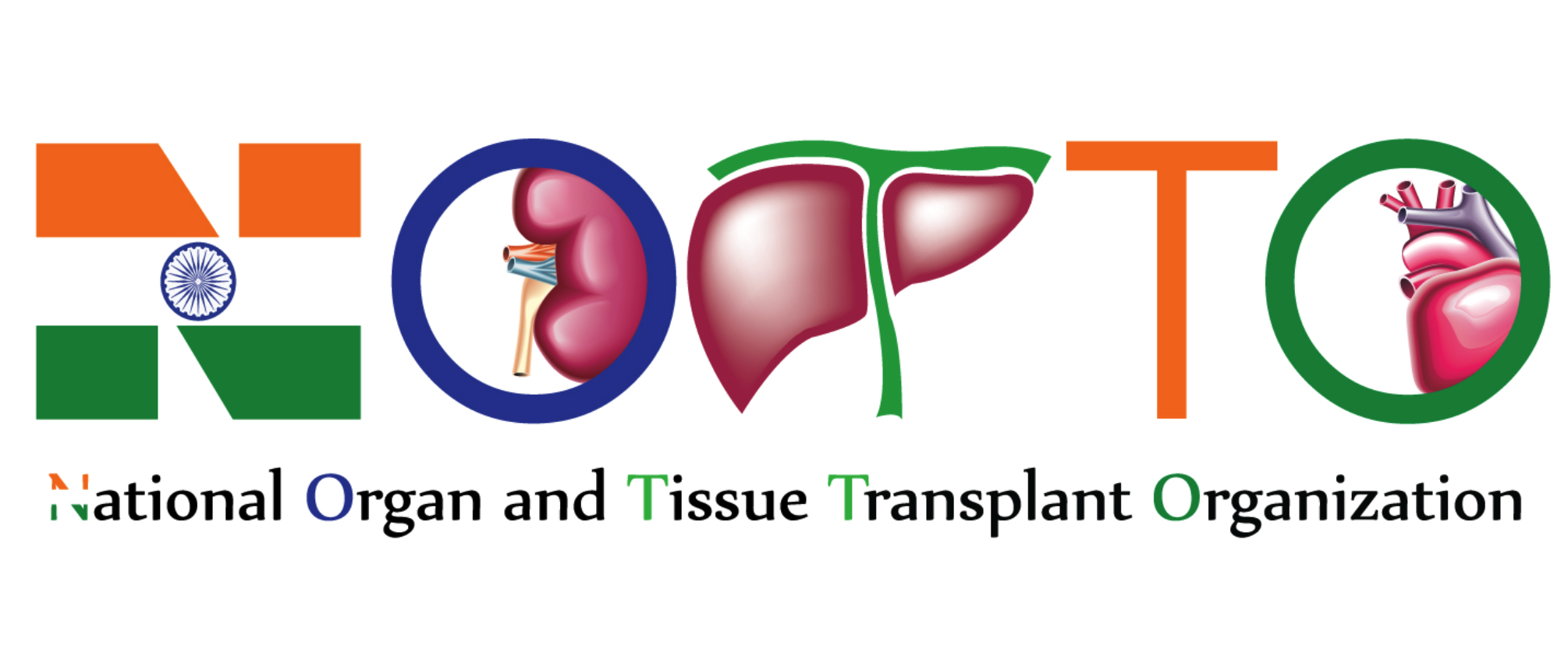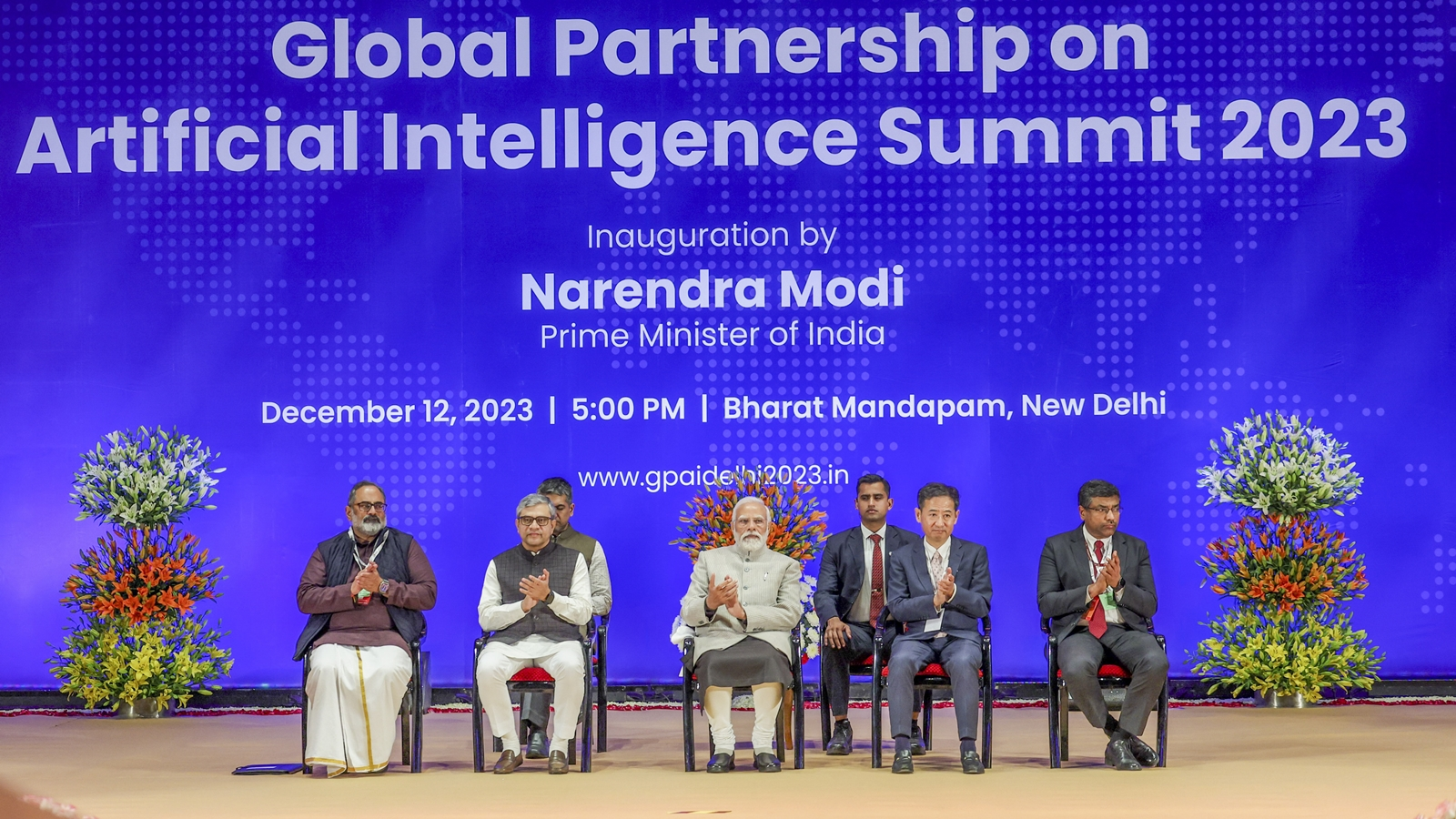M-CADWM Scheme

- 11 Apr 2025
In News:
The Union Cabinet has approved the Modernisation of Command Area Development and Water Management (M-CADWM) scheme as a sub-scheme of the Pradhan Mantri Krishi Sinchayee Yojana (PMKSY). The scheme will be implemented during 2025–26 with an initial outlay of ?1,600 crore.
Background
- PMKSY was launched in 2015-16 to expand the cultivable area under assured irrigation, improve on-farm water use efficiency, and enhance access to water at the farm level.
- The Command Area Development and Water Management (CAD&WM)programme was first initiated in 1974-75, and restructured in 2004. It has been implemented under PMKSY - Har Khet Ko Pani since 2015-16.
Objectives of M-CADWM
- Modernize the irrigation water supply network to ensure efficient delivery from existing canals or other sources to farming clusters.
- Enhance Water Use Efficiency (WUE) and promote sustainable agricultural practices.
Key Features
- Technological Integration:Adoption of SCADA (Supervisory Control and Data Acquisition) and Internet of Things (IoT) for real-time water accounting and monitoring.
- Infrastructure Development:Installation of underground pressurised piped irrigation systems up to 1 hectare per farm, supporting micro-irrigation from source to farm gate.
- Sustainable Water Management:
- Implementation of Irrigation Management Transfer (IMT) to Water User Societies (WUS).
- These societies will be supported for five years and linked with Farmer Producer Organisations (FPOs) and Primary Agricultural Cooperative Societies (PACS) to strengthen local management.
- Youth Engagement:The scheme aims to attract youth to agriculture by promoting the use of modern irrigation technologies and creating opportunities in agrarian entrepreneurship.
Components of CAD&WM (Under PMKSY)
- Structural Interventions:On-Farm Development (OFD) works, construction of field, intermediate and link drains.
- Non-Structural Interventions:One-time functional grants to registered Water Users’ Associations (WUAs), capacity building, demonstrations, and adaptive trials to promote efficient water use.
Expected Outcomes
- Improved irrigation efficiency and agricultural productivity.
- Enhanced water conservation and equity in water distribution.
- Strengthened community participation in irrigation management.
- Boost to rural employment and agriculture modernization.
Cafe Rista
- 11 Apr 2025
In News:
The Uttar Pradesh Police has taken a unique step to humanize policing and strengthen community engagement through the launch of Cafe Rista—a public-friendly café located within the Noida Police Commissionerate, Sector 108. This initiative is an example of citizen-centric policing aimed at improving the image of law enforcement and promoting positive interactions with the public.
Key Highlights:
- Launched by:The café is the brainchild of IPS officers Laxmi Singh and Babloo Kumar, with active public outreach by IPS Preeti Yadav, who brought attention to the initiative through a viral social media video.
- What is Cafe Rista?
It is a pastel-themed, aesthetically pleasing café designed to serve affordable, hygienic, and tasty meals to both civilians and police personnel. The ambiance is warm and welcoming, featuring quirky motivational quotes and a calming decor.
- Strategic Location:The café is situated close to the Family Dispute Resolution Clinic within the Commissionerate. This proximity serves a dual purpose:
- It offers a space of relaxation for families and individuals undergoing counselling or dispute mediation.
- It provides psychological respite for those visiting under stressful circumstances.
Objectives of the Initiative:
- Break Stereotypes:Challenge the conventional perception of the police as unapproachable or intimidating by creating an informal and friendly setting.
- Promote Informal Engagement:Encourage dialogue and trust-building between civilians and police personnel in a relaxed, non-threatening environment.
- Support Mental Well-Being:The café contributes to the morale and mental wellness of both the public and police officers, especially those on demanding duties.
- Welfare Policing Model:Aligns with the concept of "welfare policing", wherein the police function not only as enforcers of law but also as community caretakers.
- Public Outreach through Social Media:The initiative leverages platforms like Instagram and Twitter to showcase the human side of policing, creating transparency and relatability.
Know Your Medicine (KYM) App

- 15 Nov 2024
In News:
Union Minister for Youth Affairs & Sports, Dr. Mansukh Mandaviya, has launched a nationwide appeal to strengthen the fight against doping in sports, urging athletes, coaches, and the entire sporting community to embrace the National Anti-Doping Agency (NADA) India's ‘Know Your Medicine (KYM)’ app.
Introduction to KYM App
- Launch: The app was launched by Dr. Mansukh Mandaviya, Union Minister for Youth Affairs and Sports, to combat doping in sports.
- Developer: National Anti-Doping Agency (NADA) India.
- Purpose: To prevent inadvertent doping by allowing athletes to check whether a medicine contains substances prohibited by the World Anti-Doping Agency (WADA).
Key Features of the KYM App
- Medicine Verification: The app enables athletes to verify if any medicine or its ingredients contain banned substances listed by WADA.
- Image and Audio Search: Unique search features help users easily search for specific sport-related information.
- Customizable Search: Users can select their sport category and receive relevant, sport-specific information.
- User-Friendly: Designed for athletes, coaches, and sports professionals to quickly verify medicines and ensure clean competition.
Importance of KYM App
- Supporting Clean Sports: The app promotes a fair and ethical sporting culture by reducing the risk of inadvertent doping.
- Integrity of Sports: Helps athletes avoid penalties or bans due to accidental doping, maintaining the integrity of the competition.
- Accessible Information: Provides easy access to information regarding medicines that may contain banned substances, which is crucial for athletes' health and careers.
NADA India's Mission
- Anti-Doping Awareness: The KYM app is part of NADA India’s broader initiative to educate athletes and raise awareness about the dangers of doping.
- Goal: To promote dope-free sports and ensure that athletes and coaches are equipped with the tools needed for compliance with anti-doping regulations.
NADA India: Background and Functions
- Established: NADA India was set up in November 2005 under the Societies Registration Act, 1860.
- Mission: To serve as the independent Anti-Doping Organization for India, aiming to create a doping-free sporting environment.
- Key Functions:
- Implementing Anti-Doping Code: Ensuring compliance with the World Anti-Doping Code among all sports organizations in India.
- Dope Testing Program: Coordinating a national dope testing program with stakeholders across various sports.
- Promoting Research and Education: Encouraging research on anti-doping and educating athletes on the importance of staying clean.
- Adopting Best Practices: Ensuring the implementation of high-quality standards for anti-doping programs.
Impact and Significance
- Preventing Doping: The KYM app helps prevent inadvertent doping incidents by providing athletes with the necessary tools to check their medicines.
- Supporting Athletes: It provides athletes with a reliable way to avoid banned substances in over-the-counter medications, thus safeguarding their careers.
- National and International Compliance: Supports India’s commitment to complying with international anti-doping norms, contributing to a global effort to maintain fairness in sports.
National Organ and Tissue Transplant Organization (NOTTO)

- 22 Apr 2024
Why is it in the News?
Each organ transplant case will receive a distinctive National Organ and Tissue Transplant Organisation (NOTTO) ID assigned to both the donor and the recipient.
Highlights of the News:
- The Union Health Ministry has mandated the cessation of commercial organ transactions, particularly those involving foreign nationals, and emphasized the need for stringent oversight by local authorities.
- For deceased donor transplants, a NOTTO-ID is required for organ allocation, while in living donor transplants, the ID must be generated within 48 hours post-surgery through the NOTTO website by the hospital.
What is the National Organ and Tissue Transplant Organization (NOTTO)?
- NOTTO is a national organization established under the Directorate General of Health Services, Ministry of Health and Family Welfare, Government of India.
It serves as the central coordinating hub for:
- Organ and tissue procurement and distribution.
- Maintaining a registry of organ and tissue donation and transplantation activities across the country.
NOTTO comprises two divisions:
- National Human Organ and Tissue Removal and Storage Network:
- Acts as the primary center for nationwide coordination of organ and tissue procurement, distribution, and registry.
- Established in accordance with the Transplantation of Human Organs (Amendment) Act 2011.
- National Biomaterial Centre (National Tissue Bank):
- This center focuses on filling the gap between demand and supply while ensuring quality assurance in tissue availability.
- The Transplantation of Human Organs (Amendment) Act 2011 has expanded NOTTO's scope to include tissue donation and registration of tissue banks.
Activities performed by NOTTO include:
-
- Coordinating tissue procurement and distribution
- Donor tissue screening
- Tissue removal and storage
- Tissue preservation
- Laboratory screening of tissues
- Tissue tracking
- Sterilization
- Record maintenance
- Data protection and confidentiality
- Quality management in tissues
- Patient information on tissues
- Developing guidelines, protocols, and standard operating procedures
- Training and assistance in registering other tissue banks
Calling for caution, PM flags need for ethics, democratic values in AI (Indian Express)

- 13 Dec 2023
Why is it in the News?
India is negotiating with GPAI member countries for a consensus on a declaration document on the proper use of AI, the guardrails for the technology, and how it can be democratised.
Context:
- India is currently hosting the 4th Global Partnership on Artificial Intelligence (GPAI) Summit at Bharat Mandapam in New Delhi, scheduled from December 12-14, 2023.
- The first three GPAI summits were held in Montreal, Paris and Tokyo, respectively.
- Prime Minister Modi emphasized the dual nature of AI, portraying it as a significant development tool for the 21st century but also highlighting potential risks.
- He called for a global framework to ensure responsible AI use and urged caution in deployment.
- Addressing concerns like deepfakes, cybersecurity, and cyber-terrorism, he proposed an audit mechanism categorizing AI tools based on their capabilities.
- PM Modi is negotiating with GPAI member countries for a consensus on a declaration document outlining proper AI use, technology guardrails, and democratization.
- Recognizing AI's role in economic growth, he announced India's upcoming AI mission, focusing on AI computing power for startups and innovators, with applications in agriculture, health, and education.
- The mission aims to extend AI skills to Tier 2 and Tier 3 cities.
- PM Modi stressed ethical AI use as a guiding principle and suggested the inclusion of development and deployment protocols for high-risk AI systems in the global framework.
- He underscored AI's potential for connecting people and envisioned its ethical use in promoting economic growth, equality, and social justice.
About the Global Partnership on Artificial Intelligence (GPAI) Summit:
- The Global Partnership on Artificial Intelligence (GPAI) Summit is a three-day event starting December 12, which will see representatives from 28 member countries and the European Union.
- India is the Lead Chair for the alliance in 2024.
- The founding members of the GPAI: are Australia, Canada, France, Germany, India, Italy, Japan, Mexico, New Zealand, the Republic of Korea, Singapore, Slovenia, the UK, the US, and the EU.
- Prime Minister Narendra Modi inaugurated the summit on December 12.
- The objective of this summit is to bridge the gap between theory and practice on AI by supporting cutting-edge research and applied activities on AI-related priorities.
- It will feature a number of seminars covering a wide range of subjects, including AI and global health, education and skill development, AI and data governance, and machine learning workshops.
- More than 150 speakers from various nations will be present at the summit, including more than fifty GPAI experts.
- Moreover, leading global AI innovators such as Intel, Google, Meta, Microsoft, etc will be taking part in these events.
- Additionally, start-ups and students who win under the YUVA AI programme will present their AI models and solutions.
